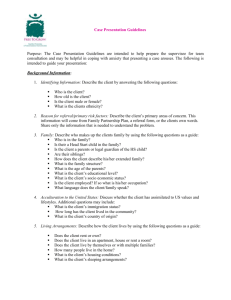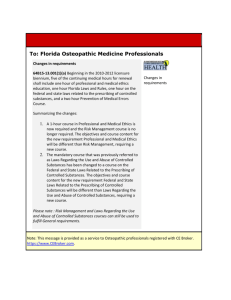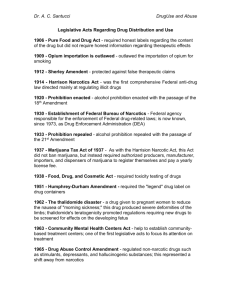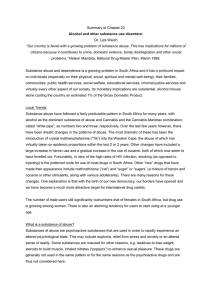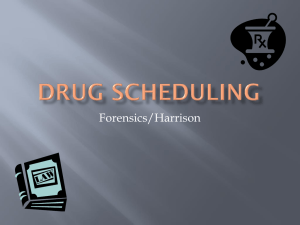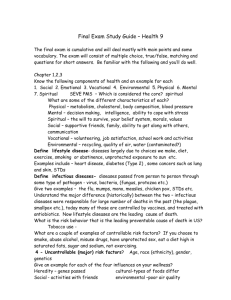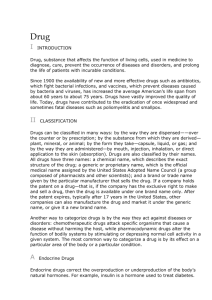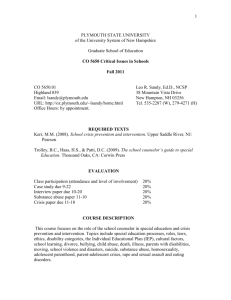CJC 213 Course Outline
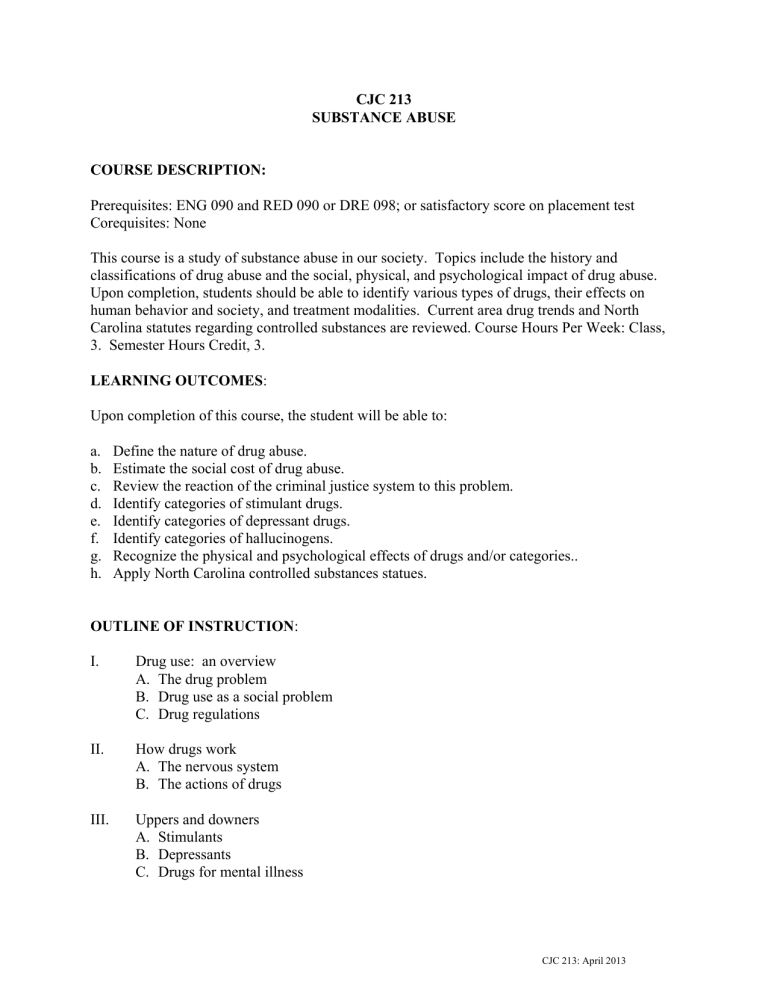
CJC 213
SUBSTANCE ABUSE
COURSE DESCRIPTION:
Prerequisites: ENG 090 and RED 090 or DRE 098; or satisfactory score on placement test
Corequisites: None
This course is a study of substance abuse in our society. Topics include the history and classifications of drug abuse and the social, physical, and psychological impact of drug abuse.
Upon completion, students should be able to identify various types of drugs, their effects on human behavior and society, and treatment modalities. Current area drug trends and North
Carolina statutes regarding controlled substances are reviewed. Course Hours Per Week: Class,
3. Semester Hours Credit, 3.
LEARNING OUTCOMES :
Upon completion of this course, the student will be able to: a. Define the nature of drug abuse.
b. Estimate the social cost of drug abuse.
c. Review the reaction of the criminal justice system to this problem.
d. Identify categories of stimulant drugs.
e. Identify categories of depressant drugs.
f.
Identify categories of hallucinogens.
g. Recognize the physical and psychological effects of drugs and/or categories..
h. Apply North Carolina controlled substances statues.
OUTLINE OF INSTRUCTION :
I.
Drug use: an overview
A. The drug problem
B. Drug use as a social problem
C. Drug regulations
II.
How drugs work
A. The nervous system
B. The actions of drugs
III.
Uppers and downers
A. Stimulants
B. Depressants
C. Drugs for mental illness
CJC 213:
April 2013
IV.
Alcohol
A. Alcohol in the body
B. Alcohol and society
V.
Familiar drugs
A. Nicotine
B. Caffeine
C. Over-the-counter drugs
VI.
Restricted drugs
A. Narcotics
B. Hallucinogens
C. Marijuana and hashish
D. Steroids
VII.
Reducing the demand
A. Drug education and prevention
B. Substance abuse treatment
VIII.
Review of North Carolina statue.
A. Scheduling of controlled substances.
B. Statues regarding the sale, manufacture, possession, and trafficking of controlled substances.
C. The toxic vapors act.
REQUIRED TEXTBOOKS AND MATERIALS:
To be announced by instructor.
STATEMENT FOR STUDENTS WITH DISABILITIES:
Students who require academic accommodations due to any physical, psychological, or learning disability are encouraged to request assistance from a disability services counselor within the first two weeks of class. Likewise, students who potentially require emergency medical attention due to any chronic health condition are encouraged to disclose this information to a disability services counselor within the first two weeks of class. Counselors can be contacted by calling 686-3652 or by visiting the Student Development Office in the Phail Wynn Jr. Student
Services Center, room 1309.
CJC 213:
April 2013



